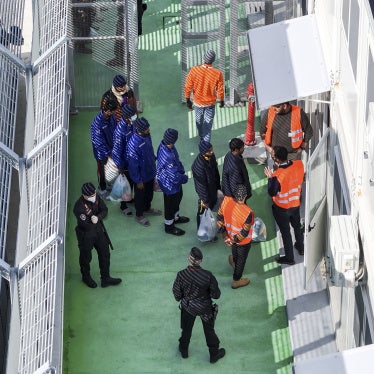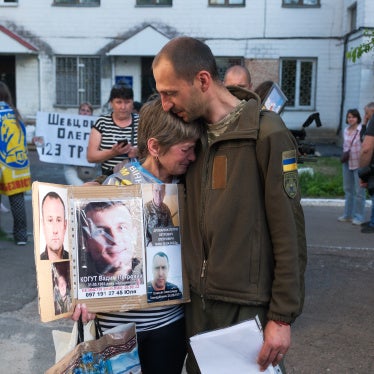The Treaties of the European Union state that the EU is founded on the value of respect for human rights. As outlined in the EU Strategic Framework and Action Plan on Human Rights and Democracy – adopted by the Council of the EU in June 2012 – this means both ensuring that the Union’s relations with other countries are founded on respect for human rights, and securing rights for everyone within the Union itself.
The Lisbon Treaty has reinforced the legal framework for EU action on human rights. Yet EU institutions have failed to respond adequately to some of the most pressing human rights problems inside the EU including abusive laws and practices by some member states. The quality of the response has also varied from institution to institution and from case to case.
The European Commission has devised a strategy on the effective implementation of the Charter, committing itself to scrutinising EU legislative proposals and implementation of EU law by member states based on the Charter. However, this strategy is not developed nor implemented to its full potential.
The European Commission has sought to use infringement proceedings in some cases. But it has been reluctant to use human rights as the basis for infringement, its decision-making and criteria have been opaque, and it has sometimes accepted cosmetic changes as sufficient to halt proceedings. The Commission has also been hesitant to confront member states on their human rights record in its annual report on the application of the Charter.
The reporting from the EU Fundamental Rights Agency (FRA) has intensified, including new willingness to identify specific problems in named member states, in addition to its mapping of violence against women and abuses against Roma, migrants, LGBT people, people with disabilities, and other vulnerable groups across the EU. But there remains a political vacuum between these developments and EU action at national or regional level to address the problems identified.
The European Parliament has been more outspoken on occasion and has played an important role in scrutinising EU legislation and challenging EU policy on human rights. The recent strong resolutions on Hungary and European complicity in the CIA rendition and secret detention programme show its potential as a guardian of human rights and the rule of law. But political and national allegiances have sometimes blunted the Parliament’s effectiveness. This was exemplified by its annual report on fundamental rights, which failed to mention a single country example – except to praise some for introducing positive measures to ensure better representation of women in political decision-making – in a 41 page report.
The response of the Council of the European Union has been the most disappointing. It has established a Working Party on Fundamental Rights and Free Movement of Persons (FREMP), where member state officials can discuss human rights challenges and possible EU action in response to violations by member states. But the work of FREMP has in fact been largely confined to negotiating the EU accession to the European Convention on Human Rights and no meaningful engagement with civil society has been established. Faced with systematic efforts by the Hungarian government to undermine the rule of law and human rights and the failure of member states to respect their obligation to investigate their complicity in acts of torture and enforced disappearances in the context of the CIA rendition programme the Council has been silent. These examples show that when it comes to serious threats to the values of the European Union, the Council lacks the political will to act. More positively, developments in Hungary have catalysed debate in the Council about whether the EU currently has the tools necessary to respond to persistent breaches of EU human rights standards.
The Human Rights and Democracy Network (HRDN) welcomes the March 2013 letter sent by the Foreign Ministers of Germany, the Netherlands, Denmark and Finland to the President of the Commission. This letter recognises that the EU’s fundamental values must be “vigorously protected” and that the EU “must be able to react swiftly and effectively to ensure compliance with its most basic principles.” We further welcome the June 2013 Council Conclusions, which for the first time recognised that more is needed to ensure human rights violations in EU member states are adequately addressed, and called on the Commission to “take forward the debate... on the possible need for and shape of a collaborative and systematic method to tackle these issues.”
We strongly believe that the EU should strengthen its response to human rights abuse within its own borders. We believe that the starting point must be that the EU already has well-developed institutional arrangements that could be deployed effectively to further promote and protect rights within the EU. This includes the willingness to give practical meaning to article 2 of the TEU, and to consider proceedings under article 7 of the TEU in case of a serious risk of a breach of the EU’s values.
At the same time, the vital contribution played by the Council of Europe institutions in promoting human rights in EU countries should be seen as a complement to, rather than a substitute for, stronger EU action. EU institutions should proactively promote implementation of Council of Europe recommendations as an essential part of securing concrete results.
The HRDN calls on the EU to consider the following steps to promote human rights protection by its institutions and member states within the Union:
- The EU should define a more comprehensive internal human rights strategy that mirrors its external strategic framework, and devise a corresponding action plan to guide collective EU action.
- The Council Working Party on Fundamental Rights and Free Movement of Persons (FREMP) should embrace an ambitious mandate on human rights and broaden out the scope of its work in this area, including by: systematically considering and responding to all reports prepared by the EU Fundamental Rights Agency and the European Parliament’s Committee on Civil Liberties, Justice and Home Affairs (LIBE); opening itself up to relevant third party actors (such as NGOs, the Council of Europe Commissioner for Human Rights, UN special mechanisms and treaty bodies) for briefings and exchanges; and initiating a regular form of engagement with LIBE as its counterpart in the Parliament with a mandate pertaining to fundamental rights. These are already well established practices embraced by the Council Working Party on Human Rights in foreign relations (COHOM).
- The European Commission should live up to its obligation as guardian of the treaties and use infringement proceedings to address serious breaches of human rights in member states; sustain them until verifiable measures have been taken to remedy the problem and be transparent and accountable for its decisions throughout the process.
- The European Commission should revisit its 2003 Communication on article 7 TEU and its strategy on the effective implementation of the Charter to allow for the effective implementation of article 2 TEU.
- The European Parliament annual report on fundamental rights in the EU should name the countries in which the thematic human rights concerns it identifies took place and make concrete recommendations to those member states and the EU institutions on how to address the problems identified.
- The mandate of the Fundamental Rights Agency (FRA) should be strengthened giving it the ability to look at all violations of human rights under all areas of EU law, with explicit responsibility in relation to articles 2 and 7 TEU. The Agency should increase its capacity to report on individual countries of concern, in addition to its comparative and quantitative work.
The Human Rights and Democracy Network (HRDN) is an informal grouping of NGOs operating at EU level in the broader areas of human rights, democracy and conflict prevention. Participation in the network is open to non-governmental organizations which engage at EU level in the promotion of human rights, democracy and conflict prevention in and outside the EU.
The vision of the HRDN is that human rights and democracy are placed at the heart of the EU's internal and external policy agenda. This vision should manifest itself in a EU that effectively protects human rights at home and is a force for positive change in the world. In pursuit of this vision, the network aims to influence EU and member state human rights policies and the programming of their funding instruments to promote democracy, human rights and sustainable peace.






